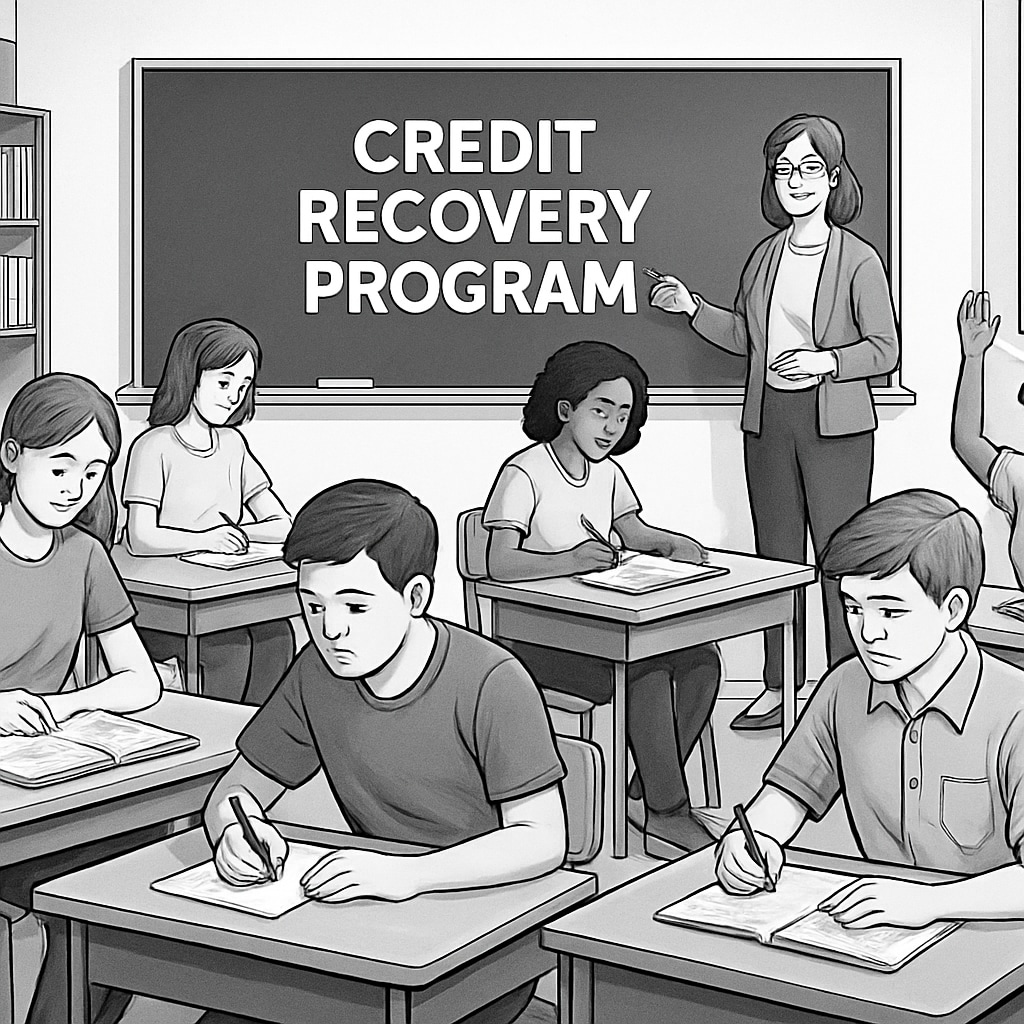Students dealing with credit deficiency in high school, particularly those diagnosed with ADHD, often face unique challenges that can feel overwhelming. However, catching up on credits and graduating on time is entirely possible with the right strategies and mindset. In this guide, we’ll explore practical steps to regain lost credits within two years while fostering a positive and fulfilling high school experience.
Understanding Credit Deficiency and Its Impact
Credit deficiency occurs when students fail to earn the required number of credits to graduate high school. This can result from missing classes, failing courses, or struggling with time management—issues often exacerbated for students with ADHD. Left unaddressed, credit deficiency can lead to delayed graduation or other academic setbacks. However, proactive measures can help students turn the situation around.

Steps to Catch Up on Missing Credits
Recovering lost credits requires a structured approach. Here are clear steps to help students, including ADHD learners, stay on track:
- Meet with a Guidance Counselor: Schedule a one-on-one meeting with your school counselor to assess the number of credits needed and create a recovery plan. Counselors can provide insights into available programs like summer school, online courses, or evening classes.
- Enroll in Credit Recovery Programs: Many schools offer specialized credit recovery programs designed for students who have fallen behind. These programs often focus on core subjects and allow students to work at their own pace.
- Utilize Online Learning Platforms: Platforms like Khan Academy (Khan Academy) or Edgenuity (Edgenuity) can help students complete coursework remotely, providing flexibility for ADHD learners who may benefit from self-paced study.
- Take Advantage of Summer School: Summer school is an excellent opportunity to earn extra credits. It allows students to focus on fewer subjects in a shorter period, which can be particularly helpful for maintaining focus.
By combining these strategies, students can make significant progress toward fulfilling their graduation requirements.
Managing ADHD While Catching Up on Credits
ADHD presents unique challenges, such as difficulty with focus, organization, and time management. To address these, students can adopt the following approaches:
- Set Clear Goals: Break down credit recovery goals into smaller, manageable tasks. Use visual organizers, such as calendars or task lists, to track progress.
- Build a Support System: Engaging parents, teachers, and tutors can provide encouragement and accountability. ADHD students often benefit from external reminders and guidance.
- Use ADHD-Friendly Study Techniques: Techniques like the Pomodoro Method (short bursts of focused work followed by breaks) can improve concentration and productivity.
- Incorporate Physical Activity: Exercise has been shown to enhance focus and reduce ADHD symptoms. Consider scheduling movement breaks throughout the day.

Maintaining a Positive High School Experience
While catching up on credits is important, students should also prioritize their overall high school experience. Balancing academics with extracurricular activities, friendships, and self-care can lead to a more fulfilling journey. Here are some tips to ensure a positive experience:
- Participate in Extracurriculars: Joining clubs, sports, or volunteer programs can provide a sense of community and accomplishment.
- Practice Self-Care: Ensure adequate sleep, nutrition, and relaxation to support mental and physical health.
- Celebrate Milestones: Recognize and reward progress, no matter how small, to stay motivated and confident.
By cultivating a balanced approach, students can thrive both academically and personally.
Conclusion: A Path to Graduation
Catching up on high school credits is a challenging yet achievable goal. With proper planning, support, and strategies tailored to ADHD needs, students can overcome credit deficiency and graduate on time. Remember, this journey is not just about academic recovery but also personal growth and resilience. Stay focused, stay positive, and keep moving forward.
For additional resources on ADHD and academic strategies, visit CHADD (Children and Adults with Attention-Deficit/Hyperactivity Disorder).


